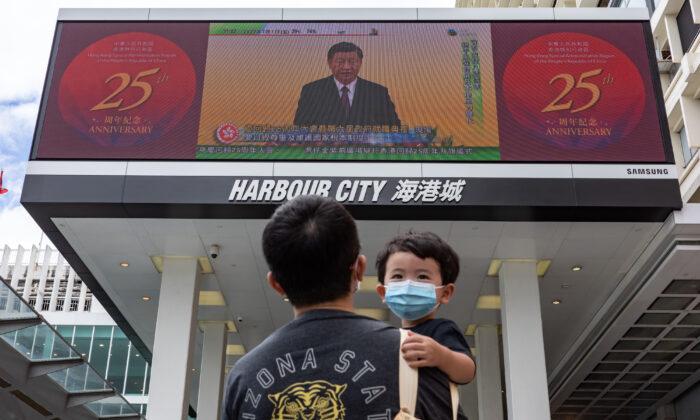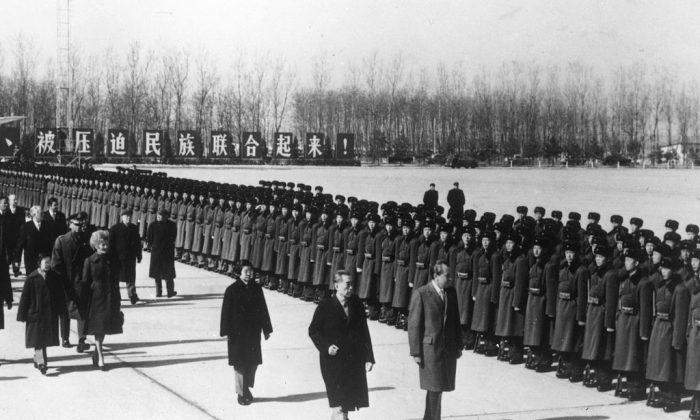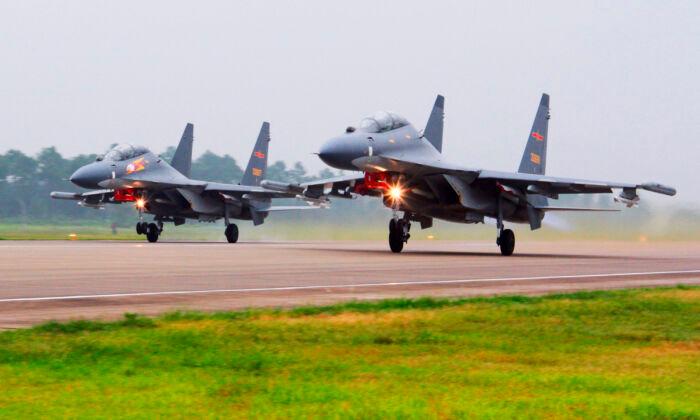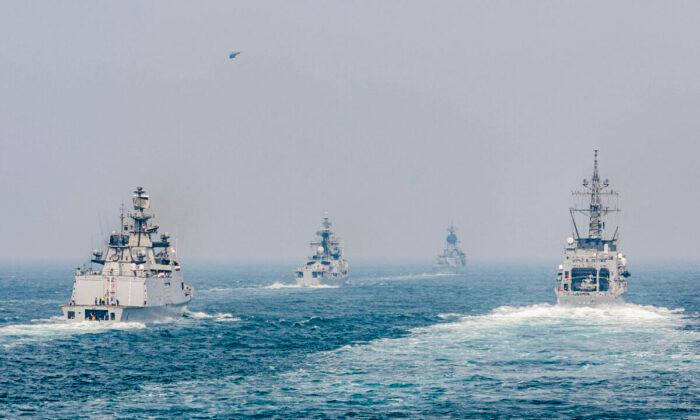On the final day of May, representatives of 55 different nationalities and 350 media representatives converged on Singapore for the annual Shangri-La security summit hosted by London’s prestigious International Institute for Strategic Studies (IISS).
Named for the hotel that serves as a venue for its deliberations, rather than the mythical Himalayan kingdom of peace and harmony, the forum focuses on less pleasant issues of deterrence and conflict resolution.
The choice of speakers implied that this was to be no ordinary gathering. IISS Executive Chairman Sir John Chipman began his opening remarks by stating bluntly that the international order is broken and that although certain Asian leaders say they want a multipolar world, there are fears within Asia that the region is becoming unipolar.
Next, and given pride of place as the forum’s keynote speaker, was Filipino President Ferdinand Marcos Jr. The Philippines has been locked in a dispute with China over the latter’s claim to a shoal that is within the Philippines’ exclusive economic zone. Most recently, after China ordered the Philippine government to remove a rusting ship from the shoal, its coast guard fired water cannons at Philippine vessels trying to deliver supplies to the crew of the ship. Mr. Marcos told the forum that if any Filipino, whether a service member or not, were killed through a willful act, that would come close to an act of war and Manila would do whatever was necessary to defend its rights.
In a post-session news conference, a Chinese lieutenant general accused Mr. Marcos of emphasizing the importance of the Association of Southeast Asian Nations (ASEAN) as a mechanism to resolve disputes, while at the same time forming a “squad” with external actors—the United States, Japan, and Australia—that China considered akin to “inviting wolves into [the] house” and wouldn’t allow. Parenthetically, the other three squad members do not consider themselves external actors since all are Pacific powers, and China itself is not a Southeast Asian nation.
The next session saw Indo-Pacific Commander Adm. Samuel Paparo take umbrage at former Ambassador to the United States Cui Tiankai’s implication that as the only diplomat in the group, he alone wanted peace. Mr. Cui then stated that Henry Kissinger had several times told him that wars start by accident, adding that the actions of the United States and its partners could have dangerous unintended consequences. Adm. Paparo countered by saying that two months before his death, Mr. Kissinger had told him that the United States should be as strong as it could be until such time as it had the ability to have a more constructive bilateral relationship. He was applauded. Adm. Paparo then extended his hand to Mr. Cui, who shook it. Both men were smiling, but Adm. Paparo had made his point.
With these events as backdrop, the real drama was reserved for the respective presentations by U.S. Defense Secretary Lloyd Austin and, a day later, his counterpart, Adm. Dong Jun. Mr. Austin sought to deal with concerns that Washington—faced with one war in Europe and another in the Middle East—would have little time for Asia, assuring the delegates that the United States was “all in” on its commitments to the region. Washington’s desideratum is a network of partnerships with the countries of the Indo-Pacific formed on an equal basis; war with China is neither imminent nor unavoidable.
Chinese commentary on the speech interpreted it as revolving only around America’s own selfish interests while ignoring the centrality of ASEAN in regional cooperation. What Mr. Austin sees as a network of partnerships, Beijing sees as the creation of an Asian NATO directed against China that engenders turmoil, conflict, and even war instead of fostering security and stability.
By contrast, Adm. Dong’s address seemed premised on the conviction that stating the avowed principles of China’s policy was equivalent to their being observed in practice. He said dialogue has always been China’s preferred method of resolving disputes and that China has always abided by the Five Principles of Peaceful Coexistence. He said that all countries, regardless of size, are equal, as are their militaries; that China has never coerced others to take sides and respects the “legitimate” interests of other countries, and that other countries should abandon their zero-sum mentality and build on “our unique Asian wisdom.”
While China wants peace, he said, there are limits to its patience. The 2016 Permanent Court of Arbitration ruling that sustained Manila’s claim on the invalidity of Beijing’s claim to the South China Sea was an “illegal” judgment, and since Taiwan was under the control of China for over a thousand years, he said, it was incontestably a province of China.
Questions to Adm. Dong were many and pointed. A Korean delegate asked how China could be trusted since its actions were so at variance with its words. An American asked whether Beijing’s belligerent actions against Taiwan while refusing to talk to its leaders fit with its avowed desire for peaceful unification. A Japanese asked whether the recent hostile comments of China’s ambassador to Tokyo were “appropriate.”
Adm. Dong, clearly uncomfortable, chose to avoid answering them. He thanked the moderator at great length, saying he had learned much from the deliberations, inviting the delegates to visit Beijing. He then focused entirely on repeating his earlier comments on Taiwan, resisting several attempts from the moderator to bring him back on track.
Predictably, Chinese media praised Adm. Dong for clearly stating Beijing’s stance on key issues. Yet its analysts must have noticed that the country was on the defensive on all of these. How much this will change Beijing’s actions remains to be seen. So far, Beijing’s tactics of professing peace and non-interference haven’t prevented China from making incremental gains through economic coercion and intimidation. There is little incentive to abandon a strategy that is succeeding.







